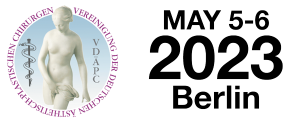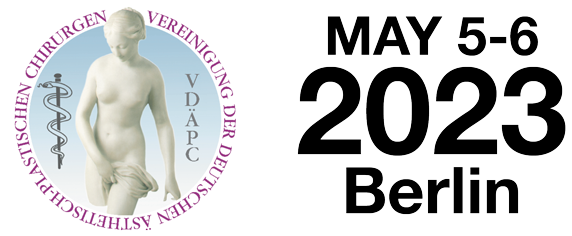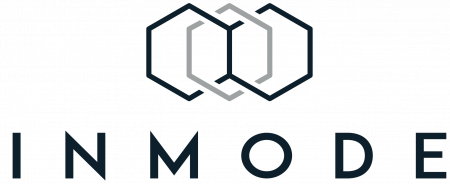Latest Covid Regulations
IMPORTANT TRAVEL INFORMATION FOR TRAVELERS ATTENDING THE VDAEPC&GBAM CONGRESS IN BERLIN, GERMANY
These travel regulations were updated on April 20, 2022 and are subject to change. VDAEPC & GBAM are not responsible for any changes to travel regulations or requirements. Please check the travel conditions for your own country.
Special provisions apply to inbound and outbound travelers, depending on whether they are entering from a high risk area, a high incidence area, or a virus variant area.
Changes of April 1
- Masks: You only need need a mask on public transport, in hospitals and nursing homes.
- When shopping, as well as when visiting museums and attractions, wearing a mask is not required any more. However, we recommend that you take a mask with you. Especially when visiting theatres, opera houses and concert halls, you should check in advance whether there are individual hygiene measures.
- Tests: You only tests for schools, Kitas and nursing homes. You don’t need tests elsewhere.
- Restaurants, bars, clubs and stadiums: No more 2G, 2G+ or 3G. No masks. No capacity limit. You can just go.
- No more free coronavirus tests, except for schools, Kitas and nursing homes.
What do I need to know when traveling to Berlin from another country?
- Currently, all travelers must complete a digital registration form before entering the country by air from another country
- Everyone entering the Federal Republic of Germany must be fully vaccinated, recovered or tested
- The testing obligation exists regardless of the area of entry takes place.
- Vaccinated or recovered persons can alternatively present a proof, unless they enter from virus variant areas. In this case, testing is also mandatory for vaccinated and recovered persons.
- Fully vaccinated and recovered persons: Quarantine and testing obligation do not apply – as long as you do not come from an area with new, contagious virus variants
- For entry from virus variant areas, a PCR test proof is mandatory. An antigen test or proof of recovery or vaccination is not sufficient here.
- On the information pages of the Berlin Senate Chancellery you will find an overview of the current entry regulations on domestic quarantine, as well as reporting and testing obligations
- Since May 13, 2021, the Ordinance on Coronavirus Entry Regulations (CoronaEinreiseV) applies uniformly throughout Germany.
The following groups of people are considered to be vaccinated or recovered
- Persons who are at least 14 days fully vaccinated with a basic immunization consists of two Biontech/Pfizer, Moderna or AstraZeneca vaccinations. In the case of the Johnson & Johnson vaccine, one vaccination is sufficient. The corresponding vaccination certificate must be submitted in digital or paper form. Vaccination certificates issued in the European Union (EU) and outside the EU are accepted provided that the vaccine is recognized by the EU. Persons who have been vaccinated outside the EU can apply for an approved vaccination certificate by presenting their vaccination documents to the relevant authorities.
- Persons who have recovered from a Covid 19 infection that occurred at least 28 days and not more than three months previously. In this case, a positive PCR test taken within this time period shall serve as proof.
- Persons who contracted Covid-19 more than six months previously and have had at least one vaccination. In this case, both a positive PCR test and proof of vaccination in digital or paper form serve as evidence.
- Persons who have received a booster vaccination.
Travelers from high-risk areas or virus variant areas
A requirement to self-isolate is in place in Germany pursuant to the Federal Ministry of Health’s Ordinance on Coronavirus Entry Regulations of 3 March 2022.
Under the Ordinance on Coronavirus Entry Regulations, persons entering Germany following a stay in a high-risk area or area of variant of concern in the last ten days must
- proceed directly to their destination following entry and
- self-isolate there (quarantine). After a stay in a high-risk area travellers must self-isolate for 10 days, after a stay in an area of variant of concern for 14 days.
During this quarantine, travellers may not leave the house or flat or receive guests.
Quarantine ends automatically if the relevant country is no longe classified as a high risk area or area of variant of concern.
The following vaccines are accepted to enter Berlin:
- Comirnaty (BNT162b2, Biontech / Pfizer) – EU-approval on the 21.12.2020
- Moderna – EU-approval on the 06.01.2021
- AstraZeneca – EU-approval on the 29.01.2021
- Janssen-Cilag International (Johnson&Johnson) – EU-approval on the 11.03.2021
- Nuvaxovid – EU-approval on the 20.12.2021
2G, 2G+ and 3G rules:
- 2G means vaccinated or recovered (geimpft oder genesen). You must also wear a mask. This means that you are either fully vaccinated (Vollgeimpft), or that you have a positive PCR test that is 28 to 180 days old. A recent negative test is not enough.
- 2G+ means recovered in the last 90 days, vaccinated in the last 3 months, or boosted. You don’t need a test.
- 3G means vaccinated, recovered, OR tested (geimpft, genesen oder getestet). This means that a recent negative test is also accepted, instead of a proof of vaccination or a proof of recovery.
- Vaccinated (geimpft) means that you received all doses of your vaccine at least 14 days ago (info link). This means 1 dose of Johnson&Johnson, or 2 doses of other vaccines.
- Recently vaccinated means that you received any dose of any vaccine in the last 90 days.
- Vaccinated with a booster means that you received all doses of your vaccine, plus a booster vaccine (Auffrischimpfung). You are considered boosted as soon as you get a booster vaccine. You don’t need to wait (info link)
- Recovered (genesen) means that you had a positive PCR test in the last 28 to 90 days(info link). Positive rapid antigen tests are not enough. You are also recovered if you have a positive test over 90 days old and got vaccinated in the last 14 to 90 days (info link).
- Tested (getestet) means that you have a negative PCR or rapid antigen test. Rapid antigen tests must be less than last 24 hours old1. PCR tests must be less than 48 hours old (info link).
You can find further information on following websites:
https://allaboutberlin.com/guides/coronavirus
https://www.berlin.de/corona/en/measures/directive/
https://www.visitberlin.de/en/important-information-your-visit-berlin
https://www.auswaertiges-amt.de/en/coronavirus/2317268
In Cooperation with






